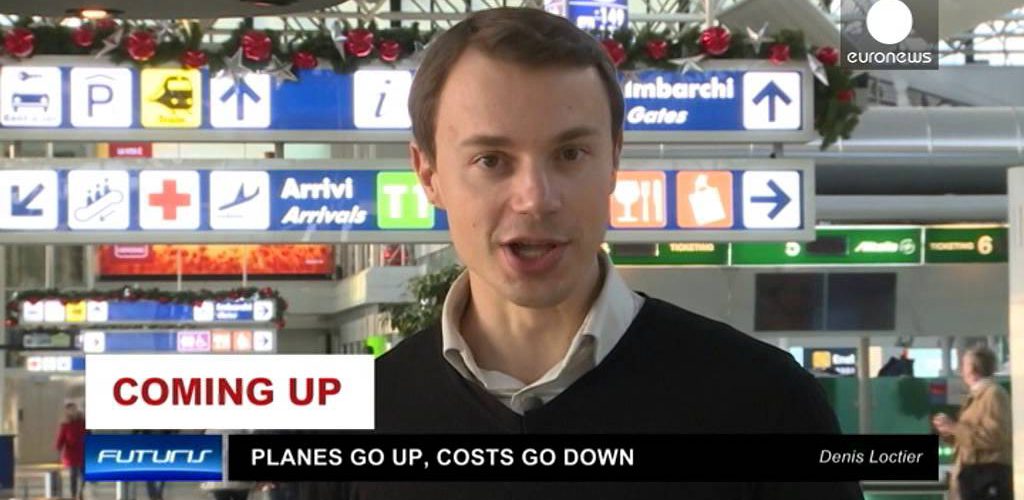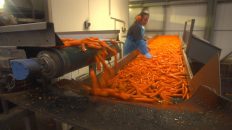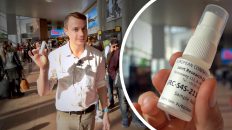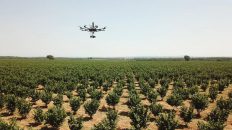While statistics say flying may be the safest way to travel, it is perhaps not so safe for the environment. Airplanes burn tons of fuel, and, on the ground, each airport consumes as much energy as a small town. Why is that, and can it be changed?
The Leonardo da Vinci-Fiumicino airport near Rome is the busiest in Italy and the sixth busiest in Europe. Opened in the early Sixties, it serves almost 40 million passengers every year – gobbling up as much energy as a town of 50,000 households.
 “Just the indoor areas of the airport span over 300,000 square metres,” says Stefano Donnarumma, the airport’s managing director.
“Just the indoor areas of the airport span over 300,000 square metres,” says Stefano Donnarumma, the airport’s managing director.
“We use around 100,000 light appliances, and all these spaces require a lot of energy to adjust the air temperature, to warm up or cool down these large volumes.”
Ventilation systems in old airports are not very efficient. Saving energy on air conditioning without impacting on passengers’ comfort is a challenge, as Andrea Costa, a researcher in civil engineering at the National University of Ireland Galway, explains.
“Ventilation systems like this consume around 50% of all the energy used at the airport, and for us it’s a great opportunity: by improving just this one utility we can significantly reduce the overall consumption,” said Costa.
 A European research project suggests coupling sensor technology with intelligent software to make old air conditioning systems smarter.
A European research project suggests coupling sensor technology with intelligent software to make old air conditioning systems smarter.
Nicolas Rehault, a researcher with HVAC, Fraunhofer Institute for Solar Energy Systems, explains more as we visit the vast interior of the ventilation system.
“We’re right under Terminal 1 at Fiumicino airport. Air is pumped into the terminal building through all these kilometres of pipes,” he says.
Pointing to what looks like a large grey cupboard, he says: “And here’s an air handling unit – units like this use a lot of thermo- and electric energy.”
All across the underground ventilation network, researchers have installed sensors that automatically detect various hidden problems causing waste of energy – such as simultaneous heating and cooling or mechanical malfunctions.
Francesco Cara, the managing director of Sensus M.I. Italia, tells us more about this complex technology: “All the data from sensors is collected in this unit here and then transmitted through a controller into the central database.”
Intelligent software constantly analyses the data. If a problem is detected, the software immediately informs maintenance teams, so that wasting energy can be stopped as quickly as possible.
Mike Brogan of Irish smart energy company Enerit shows us how the system detects problems: “We can see that there’s a fault here,” he says indicating a monitor screen.
“So, it’s telling us that some of the temperatures are out of range, there’s a problem with one of the air handling units, one of the pumps. There’s also an email going to the energy manager, notifying him about this particular fault, so he can follow up to make sure the problem is corrected quickly and effectively.”
The continuing research and development should result in a kind of “smart home” system for airports – a simple and inexpensive solution that would save energy and reduce CO2 emissions, as Nicholas Rehault of the Fraunhofer Institute for Solar Energy Systems explains:
“Our objective is to save 20% of energy use. It’s an ambitious goal, but we know it’s possible.”





